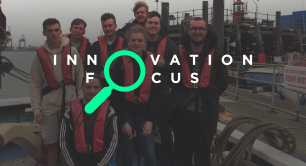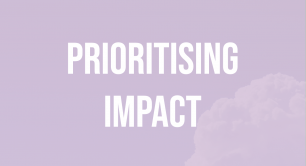Need for ‘patient, risk-bearing’ impact investment is three times greater than demand
Social entrepreneurs are crying out for equity investment – but don’t realise they need it, new research reveals this week.
Poor demand, low awareness, trust issues and lack of supply are all factors hampering the use of ‘patient, risk-bearing capital’ that could give a powerful boost to many social ventures whose growth and impact are currently being hampered.
The findings come in a report entitled Beyond Demand: the social sector’s need for patient, risk-bearing capital, published by social innovation charity Shift, in partnership with CAF Venturesome and UnLtd.
It reveals that the need for this kind of funding is three times greater than current demand across the UK.
Duncan Brown, commercial director at Shift and co-author of the report, said: “We’re publishing this report as Covid-19 brings into even sharper focus the huge need for different types of funding for the social sector. At Shift we have ten years’ experience trying to secure patient capital for social ventures but now we’ve been able to unearth the real extent of this need across the whole sector. It’s time to act on this new knowledge and work together to unlock this type of funding for greater social good.”
The researchers focused on the role of what they described as “investment that is prepared to wait a considerable amount of time before seeing a potential return, where the financial risk is shared between investor and investee”.
This type of funding is uncommon in the social sector in the UK, yet is thought to be well-suited to powering innovation for long-term social impact.
The research, funded principally by the Esmée Fairbairn Foundation, involved a survey of more than 300 social purpose organisations across England and Wales. Almost one in five (18%) of those surveyed met criteria for needing patient, risk-bearing capital – but only one third of this group were actually seeking it.
We haven’t taken on equity because we don’t know any trustworthy investors who get social impact properly and are truly bold, patient and ambitious. This is missing from the sector
The report explores demand and supply side barriers which may explain the disparity between need and demand, including awareness and understanding, and investor readiness. “Awareness of equity and quasi-equity funding is much lower than grant or debt funding,” it says. “Few social purpose organisations have a preference for equity funding or believe themselves to be eligible even if they did.”
One survey respondent told researchers: “We haven’t taken on equity because we don’t know any trustworthy investors who get social impact properly and are truly bold, patient and ambitious. This is missing from the sector.”
A key problem unearthed by the research is that demand itself seems to be latent – in other words, social ventures don’t actually realise they need it. This lack of demand then affects the subsequent supply, which the report said was also minimal.
The report cites a recent study by Social Enterprise UK, which indicates that only 5% of respondents were seeking equity investment as opposed to grants or debt, and further research by Big Society Capital, showing that equity-like products make up only 2% of the social investment market in the UK.
More recent data suggests that only £25m of the £2.9bn committed between 2016 and 2018 was provided through venture and equity funding.
Exploring the investment needs of social ventures in more detail, the report looks at organisations in three stages of their development – those who are ‘innovating’, those who are ‘scaling’ and those who are ‘deepening’ their impact. ‘Patient, risk-bearing’ capital could be right for oganisations at all of these stages, the researchers contend.
They point out that in the private sector, so-called ‘angel investors’ look to make at least a tenfold return on their investment. This is rarely possible in the social sector – so the financial return is replaced or complemented by social impact.
Next steps: research and testing
The researchers describe their report as “a jumping off point for further enquiry”. They are calling for further research in two areas: first, to explore what motivates and influences demand for patient, risk-bearing investment, and second, to understand the enablers and barriers affecting supply and deployment.
Following this research, the report calls for a ‘test and pilot’ phase for new, patient finance initiatives. “This might include blending various sources of funding to meet an appropriate risk-return-impact threshold, introducing new financial products, or simplifying existing products.”
Alongside this, says the report, “will emerge the insight, data and evidence necessary to form a strong case for wholesale funding; building an investment ecosystem of patient, risk-bearing capital for social purpose organisations – stimulating greater, scaled innovation in the sector.”
Ben Smith, head of social investment at Esmée Fairbairn Foundation, said his organisation had made its first social investment in 1997 and had “become more progressive over the years in how we think about investment, taking an ‘impact-first’ and advocating for appropriate, flexible and patient funding”. He described the research as “an important next step both to further our knowledge and influence funders to offer the best kind of transformational funding for social impact”.
David Bartram, director of ventures at Unltd, said: “‘UnLtd have long been supporting social entrepreneurs to access the capital they need to grow their impact. We recognise the need for different types of capital in this market with impact driven ventures often requiring capital that is patient, flexible and aligned to impact ambitions. This piece of research clearly highlights this demand and where there are barriers in the market preventing these ventures from accessing it.”
We're working hard to provide the most up-to-date news and resources to help social businesses and impact investors share their experiences and get through the Covid-19 crisis. But we need your support to continue. As a social enterprise ourselves, Pioneers Post relies on paid subscriptions and partnerships to sustain our purpose-led journalism – so if you think it's worth having an independent, mission-driven, specialist media platform for the impact movement, please click here to subscribe.




